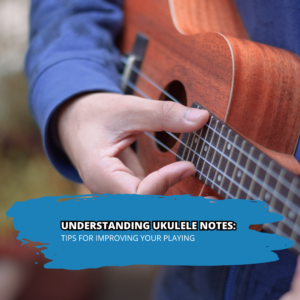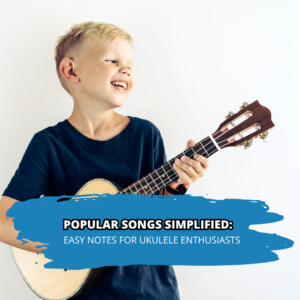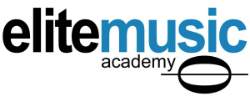Buying a new guitar is always an exciting experience! This is your first step on the path to learning how to play beautiful music. If you are planning on signing up for guitar lessons or have already done so, you’ll need to choose the right guitar for you. Guitars come in a wide variety of models and make and it can seem quite confusing at the beginning when you are trying to narrow down your choices. Use this guide to help you choose the best guitar for your guitar lessons.
Guitar Lessons Toronto
When you are taking guitar lessons in Toronto you’ll want to feel inspired to play more often. This is why it’s so important to find a guitar that looks good and sounds good to you. This is a personal choice and there is no right or wrong make or model. It all comes down to personal preference and this guide will help you sort it out.
Acoustic versus Electric Guitars
Acoustic guitars create a rich sound without any electric amplifiers. They are often the preferred choice for genres such as bluegrass, country, and folk music. They also less commonly used for R&B, blues, and rock. If you choose to start taking acoustic guitar lessons in Toronto, you’ll easily be able to switch over to electric guitar lessons later. The same holds true for starting with electric guitar lessons. The skills you learn with either instrument can be carried over to the other.
An electric guitar has a narrower neck than an acoustic guitar so it makes a great choice for people that are just starting out. As well, the strings on electric guitars are easier to use. Keep in mind, however, that you should choose the guitar based on the type of music you plan on playing and your sound preferences.
Advantages and Disadvantages of Acoustic and Electric Guitars
Acoustic guitars don’t need amplifiers, which may be an important cost-saving factor if you’re operating on a budget. Acoustic guitars, however, have a range of tones and sounds that are more limited than their electric counterparts. They also need thicker strings, which beginners may find more difficult to play.
Electric guitars are versatile and are able to produce many different tones. They are often easier to play than acoustic guitars but the only way to get a full sound out of them is to purchase a connector cable along with an amplifier. An electric guitar can sound soft or loud, depending on the setting chosen on the amplifier.
Different Types of Electric Guitars
If you decide to go with an electric guitar, there are 3 different types to choose from including:
- Hollow body
- Solid-body
- Semi-hollow body
An electric guitar with a hollow body is most commonly used to play blues or jazz since it has a big resonating chamber. The tone produced by this type of instrument is electrified yet smooth.
If you would prefer to play country, rock, or pop music, look at the styles with a solid body. Since it doesn’t have a hollow chamber, the amplification can be louder.
A semi-hollow body contains a centre solid block within a hollow resonating chamber. This type of electric guitar can adapt well to almost any type of genre and is very versatile.
How to Choose the Best Guitar for You
Once you have decided whether an electric or an acoustic guitar would be best for you, there are other factors to consider such as:
Price Range
Take a look at your budget before starting to shop for a guitar. There is a wide range of prices for guitars and some can be very expensive. If you are just starting out, look for a guitar that isn’t too costly. This way, if for one reason or another you don’t enjoy playing the guitar and would like to switch over to a different instrument, you won’t regret your buying decision. You’ll also have to factor in the cost of any accessories and a guitar case.
Try Before You Buy
When it comes to guitars, aesthetics only plays a small role in determining the right guitar for you. You should never choose a guitar-based only on the way it looks. There are some beautiful guitars that are very difficult to play. You’ll never know how the guitar will play until you try it out first. Many people make the mistake of buying a guitar from an online store based solely on the looks. This is never a good idea.
Do your best to try a guitar before you buy it. If you see one online that you like at a great price, you should see if it’s in stock at a guitar store in your local area so that you can try it out first. You can also mention to the store clerk that you saw the same model online for a better price to see whether or not the store can match the price. This way, you’ll be able to take your guitar home with you the same day. This will be especially helpful if you have signed up for guitar lessons and they will be starting soon.
Examine the Guitar
You can examine the guitars in the store to make sure that they are a decent quality even if you’re not a guitar expert. You should be looking for a guitar without any bends or curves in the neck. As well, make sure that you can comfortably and easily reach all of the fretboards. You’ll want to guitar to be the right size for you.
If you are choosing an electric guitar, ask the sales consultant to plug it into an amp. Toggle the knobs and switches to make sure that you don’t hear any crackling noises. If you do hear crackling sounds, the internal electronics may possibly be dirty. Look for an electric guitar that doesn’t make any of these crackling noises.
Electric and Acoustic Guitar Lessons Toronto
If you are planning on taking electric or acoustic guitar lessons in Toronto, visit our website at elitemusic.ca. We offer lessons in our physical location as well as online. We also provide group lessons, which are a lot of fun. Learn more about the different lessons available at Elite Music Academy and when they are scheduled on our website or feel free to give us a call today at 416-406-5355.








